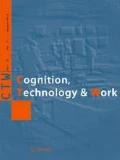Abstract
Multimedia involves a combination of multiple modes such as text, graphics, audio and video to present information for learners. Multimedia-based learning has increasingly proliferated in educational circles, having been shaped by rapid technological advancements. In designing pedagogically sound multimedia systems a high premium needs to be placed on leveraging a judicious mix of various presentation modes to cater to users’ differing learning styles and needs. This will ensure that learning is optimised which is essentially learner-centric in nature in multimedia rich learning environments. Learner-centric in the sense that learners have control over the pace of their own learning and are empowered to take charge of their learning trajectories. In recent times, cognitive psychology has progressed in its empirical research development and many of the major findings in this field have been of use in the instructional design of multimedia educational resources. In this paper, we review some of these key principles and their implications in the development of multimedia contentware that is both aesthetically appealing and pedagogically engaging.


Similar content being viewed by others
References
Baddeley A, Hitch G (eds) (1974) Working memory, vol 8. Academic Press, New York
Bagui S (1998) Reasons for increased learning using multimedia. J Educ Multimedia Hypermedia 7(1):3–18
Beccue B, Vila J, Whitley L (2001) The effects of adding audio instructions to a multimedia computer based training. J Educ Multimedia Hypermedia 10(1):47–67
Chandler P, Sweller J (1994) Why some material is difficult to learn. Cognit Instr 12:185–233
Clark RC, Mayer RE (2003) e-Learning and the science of instruction. Pfeiffer, San Francisco
Ericsson KA, Kintsch W (1995) Long-term working memory. Psychol Rev 102:211–245
Fricke R (1991) Zur Effektivitat computer and videounterstutzter Lernprogramme. Empirische Padagogik 5(2):167–204
Hede T, Hede A (2002) Multimedia effects on learning: design implications of an integrated model. Paper presented at the ASET
Kazmerski VA, Blasko DG (1999) Teaching observational research in introductory psychology: computerized and lecture-based methods. Teach Psychol 26(4):295–298
Klausmeier HJ (1985) Educational psychology. Harper and Row, New York
Kulik CL, Kulik J (1991) Effectiveness of computer-based instruction: an updated analysis. Comput Hum Behav 7:75–94
Mayer RE (1997) Multimedia learning: are we asking the right questions. Educ Psychol Rev 8:357–371
Mayer RE, Gallini JK (1991) When is an illustration worth ten thousand words? J Educ Psychol 82:715–726
Mayer RE, Moreno R (1997) A cognitive theory of multimedia learning: implications for design principles. Wiley, New York
Mayer RE, Sims VK (1994) For whom is a picture worth a thousand words? Extensions of a dual-coding theory of multimedia learning. J Educ Psychol 86:389–401
Merchant S, Kreie J, Cronan TP (2001) Training and users: assessing the effectiveness of multimedia CBT. J Comput Inf Syst 41(3):20–25
Miller GA (1956) The magical number seven, plus or minus two: some limits on our capacity for processing information. Psychol Rev 63:81–97
Moreno R, Mayer RE (2000) Learner-centered approach to multimedia explanations: deriving instructional design principles from cognitive theory. Interactive Electronic Multimedia Journal of Computer-Enhanced Learning 2(05)
Najjar LJ (1998) Principles of educational multimedia user interface design. Hum Factors 40(2):311–323
Norman D (1993) Things that make us smart: defending human attributes in the age of the machine. Addison–Welseley, Reading
Penney CG (1989) Modality effects and the structure of short term verbal memory. Mem Cogn 17:398–422
Peterson L, Peterson M (1959) Short-term retention of individual verbal items. J Exp Psychol 58:193–198
Shiffrin RM, Atkinson RC (1969) Storage and retrieval processes in long-term memory. Psychol Rev 76:179–193
Steyn MMD, du Toit CJ, Lachmann G (1999) The implementation of a multimedia program for first year university chemistry practicals. S Afr J Chem-Suid-Afrikaanse Tydskrif Vir Chemie 52(4):120–126
Sweller J (1988) Cognitive load during problem solving: effects on learning. Cogn Sci 12:257–285
Sweller J (1994) Cognitive load theory, learning difficulty and instructional design. Learn Instr 4:295–312
Sweller J (1999) Instructional design in technical areas. ACER Press, Melbourne
Author information
Authors and Affiliations
Corresponding author
Rights and permissions
About this article
Cite this article
S. L., M. Creating interactive multimedia-based educational courseware: cognition in learning. Cogn Tech Work 7, 46–50 (2005). https://doi.org/10.1007/s10111-004-0171-1
Received:
Accepted:
Published:
Issue Date:
DOI: https://doi.org/10.1007/s10111-004-0171-1




